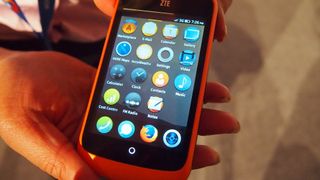Why basic smartphones will win in the race for 'the next billion' users
Is Nokia onto something?

With so many high-end smartphones about, the market for cheap PAYG phones is long dead. That's the received wisdom, but it's wrong – so wrong – because it's predicated on a mis-understanding of where the 'market' is.
If you hadn't guessed already, the US, Europe and the rest of the developed world ain't where it's at. All consumer electronics companies – and handset makers in particular – are looking much further afield.
"The big opportunity is in how we put smartphones into the hands of the next billion," says Dan Appelquist, Open Web Advocate at Telefónica Digital. "And we do not believe that the situation we currently see with smartphones in developed markets will necessarily be replicated as this happens."
Cue basic 'feature' handsets like the new Nokia 105 and Nokia 301. After an era of 'quaint Western bias' the accountants are waking up to the fact that iPhones and Galaxies don't cut it in India and other developing economies – and that's where the money is. "Market leaders in the developed world don't have the technologies or the price points to succeed and will have to innovate rapidly to do so," says Victor Basta at Silicon Valley-based analyst firm Magister Advisors.
"China and India alone have a population two and half times the combined population of the US and Europe." Analyst house IDC estimates that almost 920 million mobile devices will ship this year, predominantly in developed nations, but with seven billion souls on the planet, there's a long way to go.
"There is a trend towards cheap 'light-weight' versions of Android and iOS devices aimed at the third world in a bid to build brand loyalty for the future," says Kevin Curran, senior member at the Institute of Electrical and Electronics Engineers (IEEE). "Currently, top of the range Apple and Google smartphones are simply too expensive for the common people."
Cue the rise of basic challenger smartphones. "Some smartphone users are turning their back on Apple and Samsung for so-called 'basic phones' like Blackberry and Nokia Windows because we are now entering a new phase; one that sees a diminishing return on the extra investment for a premium handset," says Peter Chadha, Founder of DrPete and CEO of Steegle.com.
Get daily insight, inspiration and deals in your inbox
Get the hottest deals available in your inbox plus news, reviews, opinion, analysis and more from the TechRadar team.
"These 'basic challenger phones' can provide their users with excellent email, internet access and even applications. This is a real shift as these alternatives historically struggled, with poor screens that lacked capacitive touch, and tardy processors." However, the likes of Siri, voice recognition and 'face unlock' are features too far for most people on the planet.
What's the world's most popular smartphone brand?
Despite what we've said about cheaper phones gaining in popularity, there's an aspirational aspect, too. A poll of 3,670 people in Brazil, India, Nigeria and Saudi Arabia last month found that Samsung is currently the brand of choice (32%) in these markets, with Nokia coming in second place (22%) and Apple in third (21%). Compare that to the UK/US, where Apple is still the frontrunner at 32%.
The same Upstream 2013 Emerging Markets Mobile Attitudes report also found that a third of emerging market consumers would buy a device from a brand that has similar functionality and features to a high-end brand, but at a lower cost. And here's the rub: 38% of Nigerians, 15% Indians, 11% Brazilians and 9% of consumers from Saudi Arabia want a smartphone for less than $100 USD, while half of those polled would be prepared to spend $100-300 USD on their mobile.
That's not enough for an iPhone or Galaxy S4, but the world's biggest economies have their own solutions.
For instance, China's most popular search engine Baidu sells smartphones made by Lenovo (and it even has its own Google Glass competitor, the Baidu Eye). Its latest handset is the LePhone A586, which has a 4.5-inch screen, runs Android 4 – including Baidu's own cloud features, apps, voice search and even voice unlock – and costs just £100/$153 USD. That's easily four times cheaper than an iPhone.
Jamie is a freelance tech, travel and space journalist based in the UK. He’s been writing regularly for Techradar since it was launched in 2008 and also writes regularly for Forbes, The Telegraph, the South China Morning Post, Sky & Telescope and the Sky At Night magazine as well as other Future titles T3, Digital Camera World, All About Space and Space.com. He also edits two of his own websites, TravGear.com and WhenIsTheNextEclipse.com that reflect his obsession with travel gear and solar eclipse travel. He is the author of A Stargazing Program For Beginners (Springer, 2015),

